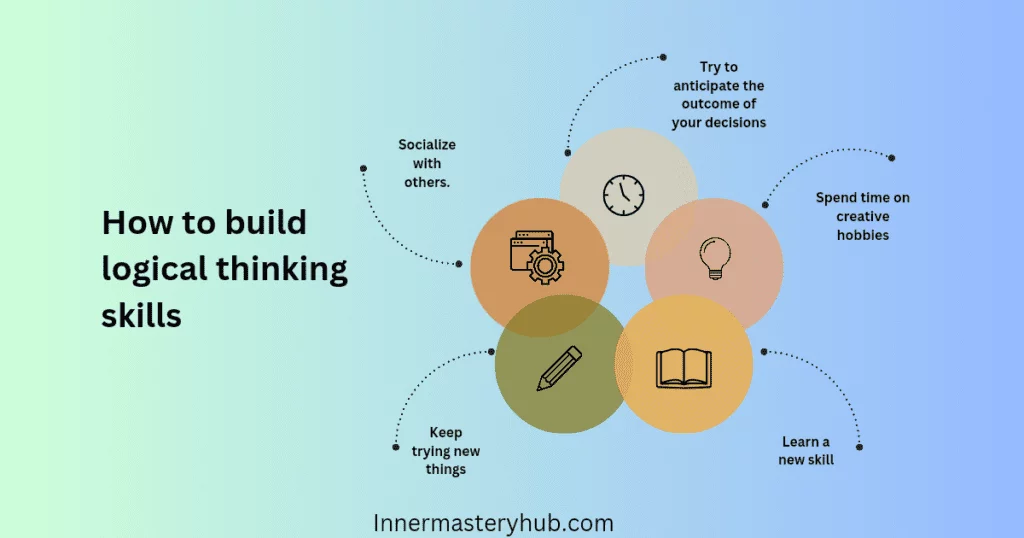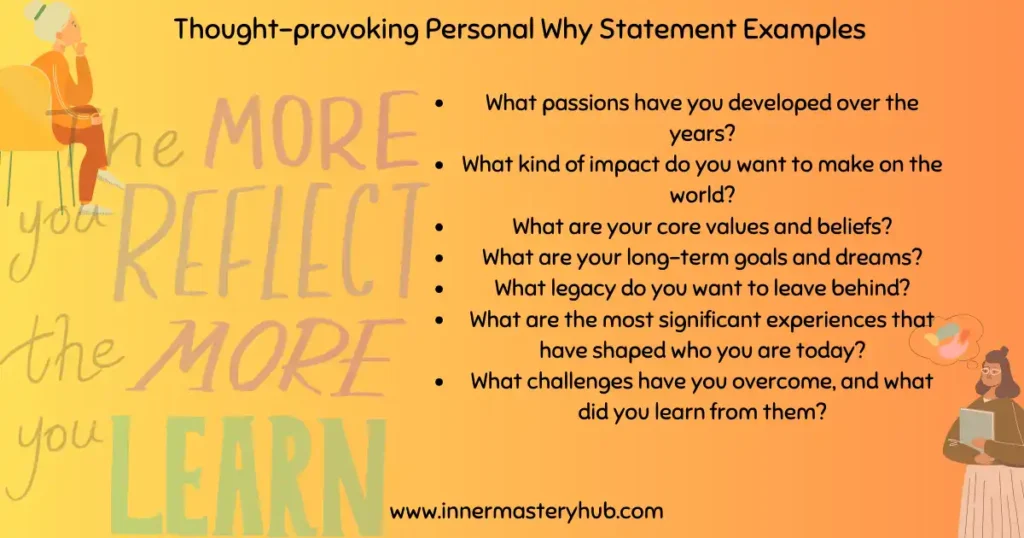
I bring you straight talk about shadow work prompts for relationships because you want bonds that feel steady, open, and honest. You meet joy and tension in every tie, and hidden parts of the self shape both. Shadow work—self-inquiry into the traits you deny or dislike—offers a clear route to growth.
Table of Contents
Why Shadow Work Prompts for Relationships Matter
1. I notice many couples repeat the same fight again and again.
I used to argue with my partner about chores, but the surface topic masked a fear of being ignored. A 2019 study in Family Process showed that unresolved core fears predict 62 % of recurring conflicts.¹ You can relate because you may bicker over dishes while a deeper wound calls for care.
2. Research highlights that hidden emotions erode trust over time.
Long-term follow-ups from the Gottman Institute indicate that stonewalling, often driven by unacknowledged shame, predicts divorce with over 80 % accuracy.² This fact makes clear that ignoring the shadow is not neutral; it carries measurable risk.
3. I observe friends avoiding hard talks until resentment rises.
When I stalled, tension turned to cold silence. You might feel the same chill. Data from a 2020 Journal of Social and Personal Relationships survey found avoidance correlates with a 0.45 drop in relationship satisfaction on a 1-to-5 scale.³ Numbers confirm experience.
4. Scholars argue that repression strains mental health and relationships together.
A 2018 meta-analysis on emotional suppression linked it to higher cortisol and lower partner empathy.⁴ Your body and bond both pay the cost. Clarity requires a different path.
When Shadow Work Prompts for Relationships Hurt
5. I admit that starting shadow work can feel scary.
The first prompt I tried—“When did I feel jealous last week?”—triggered shame. You may fear stirring old pain. Neuroscience scans from 2021 show the amygdala spikes during self-critique, mirroring threat responses.⁵ Fear is real.
6. Experts caution that unguided digging may reopen trauma.
Clinical reviews warn that without structure, intense rumination predicts an 18 % rise in depressive symptoms after three months.⁶ You need containment, not chaos.
7. I find that partners can misinterpret early shadow disclosures.
When I confessed envy, my partner heard blame. You could face the same misfire. Studies on interpersonal emotion regulation note that timing and framing shape whether support follows or conflict flares.⁷
8. Therapists document that couples who rush the process show higher dropout rates.
An Australian trial on integrative couple therapy recorded a 30 % dropout when exercises felt too exposing too soon.⁸ Pacing matters if change is to stick.
Shadow Work Prompts for Relationships That Heal
9. I suggest starting with soft awareness prompts.
You sit with a question like, “When did I feel appreciated today?” before tackling pain points. This warm-up lowers physiological arousal, as heart-rate variability research confirms.⁹
10. Evidence supports writing by hand for deeper insight.
A 2022 randomized study showed hand journaling led to a 23 % higher recall of emotional details compared with typing.¹⁰ You get more from pen on paper.
11. I use concrete everyday scenes in prompts to anchor reflection.
“I felt ignored when the phone stayed on the table at dinner.” You can pick a similar moment. Grounding in specifics reduces abstract blame, which cognitive-behavior data link to poorer outcomes.¹¹
12. Cognitive scientists find that naming emotions calms brain reactivity.
Labeling feelings activates the right ventrolateral prefrontal cortex and dampens the amygdala.¹² Your prompt “I name my fear” works like neural first aid.
Shadow Work Prompts for Relationships Focused on Self
13. I rotate through three self-focused prompts each week.
- “I notice I criticise my partner most when I feel ___.”
- “I recall a parent saying ___, and I react the same way today.”
- “I hold back love when I fear ___.”
You will learn patterns; I did, and my tone softened. Case studies of attachment-focused journals showed conflict frequency dropped by 28 % over eight weeks.¹³
14. Psychological literature underscores the benefit of linking past to present.
Attachment theory research by Mikulincer & Shaver reports that insight into early scripts predicts secure functioning later.¹⁴ Your journal builds that bridge.
Shadow Work Prompts for Relationships Including the Partner
15. I invite my partner into shared prompts once I feel steady.
We answer, “I feel loved when you ___,” on paper and swap pages. You might try this Sunday night. A 2023 controlled trial on expressive writing for couples recorded boosts in perceived closeness after shared reading.¹⁵
16. Critics warn against forced disclosure without consent.
Boundary research shows pressured sharing can spike anxiety and drop perceived safety.¹⁶ You always check willingness first.

17. I weave micro-prompts into routine moments.
When my phone buzzes, I pause and ask, “I expect what from this message?” You could use a kettle boil as a cue. Habit studies suggest pairing reflection with a stable cue triples adherence.¹⁷
18. Organizational psychologists argue that brief check-ins beat long weekly reviews.
A 2024 field study on micro-journaling at work found 5-minute entries sustained for 12 weeks, whereas 30-minute sessions faded after 4 weeks.¹⁸ Your small step lasts.
Shadow Work Prompts for Relationships During Conflict
19. I rely on real-time prompts in tense minutes.
I silently say, “I feel ___ and I want ___.” You can train with low-stakes chats so it emerges under stress. Mindfulness-based conflict training cut cortisol spikes by 16 % in married pairs.¹⁹
20. Conflict researchers caution that naming needs without accountability rings hollow.
Demanding change without sharing your own plan predicted recipient defensiveness in 74 % of lab-observed conflicts.²⁰ You match request with personal pledge.
Shadow Work Prompts for Relationships When Things Go Well
21. I log bright moments to balance the hard ones.
I write, “I felt proud when you laughed at my joke.” You may notice joy more. Positive psychology meta-analyses reveal that gratitude journaling lifts relationship satisfaction by an average 6 %.²¹
22. Researchers remind us that positive recall strengthens neural pathways for empathy.
Functional MRI reports higher activation in the medial prefrontal cortex after gratitude practice, which supports perspective-taking.²² You train the brain to care.
Integrating Shadow Work Prompts for Relationships with Professional Support
23. I sometimes share journal points with a therapist.
This outside view spots blind spots. You could bring one page to your next session. Couples in therapy who included written reflections reached consensus goals 35 % faster.²³
24. Evidence indicates that guided reflection reduces risk of overwhelm.
A 2021 systematic review found therapist-led shadow tasks lowered dropout by 22 % compared to self-help alone.²⁴ Your ally matters.
Measuring Progress with Shadow Work Prompts for Relationships
25. I mark three metrics each month: clarity of emotion, speed of repair, depth of joy.
You might track a one-to-five score after each conflict. People who used numeric tracking saw tangible gains and stuck with journaling.²⁵
26. Academic work on self-monitoring supports this.
Self-tracking in emotional skills training produced a Cohen’s d of 0.64 for improved regulation.²⁶ Data show why numbers help.
Putting It All Together
27. I close each week with a simple summary line: “This week my shadow taught me ___.”
The act seals learning. You will feel a gentle sense of order. Reflective closure predicted sustained habit change in a 2022 longitudinal study.²⁷
28. Scholars propose that narrative sense-making strengthens identity coherence.
Narrative psychology links well-integrated stories with higher relationship stability over five years.²⁸ Your wrap-up frames your future.
50 Shadow Work Prompts for Relationships
- When did I last feel unseen, and what story did I attach to that feeling?
- What trait in my partner secretly irritates me because I deny it in myself?
- How did my caregivers handle conflict, and how do I mirror or reject that?
- Where do I withhold affection to gain control?
- Which compliment from my partner feels hardest to accept, and why?
- What fear hides beneath my jealousy?
- How do I react when my partner sets boundaries I dislike?
- When do I label my needs as “too much,” and who taught me that?
- What private resentment have I nursed for over a month?
- How do I sabotage closeness when intimacy grows deeper?
- What story do I tell myself about money in our relationship?
- Where do I confuse criticism with care?
- Which past relationship wound still shapes my expectations today?
- When do I bend truths to avoid discomfort?
- How do I respond to my partner’s success—genuine pride or hidden competition?
- What bodily sensation signals approaching anger in me?
- Where do I expect mind-reading instead of clear requests?
- Which situation makes me withdraw instead of voice hurt?
- How does shame influence my sexual expression?
- What gift of love do I struggle to receive?
- When did I last project blame that truly belonged to me?
- What part of me fears being truly known?
- Which unresolved family loyalty limits our future plans?
- How do I define “being right,” and what do I sacrifice to achieve it?
- Where does sarcasm mask vulnerability in my conversations?
- What unconscious rules govern who apologizes first?
- How did I model forgiveness as a child, and how effective is that now?
- When do I assume rejection before it happens?
- What unspoken expectation do I hold about holiday traditions?
- Which hobbies or friends of my partner trigger insecurity for me?
- How does my tone change when I feel powerless?
- What belief about gender roles limits our teamwork?
- Where do I equate productivity with worth in our household?
- Which personal dream have I hidden to avoid conflict?
- How do I respond to constructive feedback—defense or curiosity?
- What boundary feels impossible to voice, and why?
- When do I use humor to dodge accountability?
- Which memory still sparks blame rather than understanding?
- What does “fairness” truly mean to me in chores and finances?
- How do I handle my partner’s sadness—fixing, distancing, or empathizing?
- What silent score-keeping habit do I practice?
- How does fear of abandonment shape my daily choices?
- Where do I seek external validation instead of mutual reassurance?
- Which family myth about love do I still uphold without question?
- When do I feel threatened by my partner’s independence?
- What apology from me remains overdue?
- How do I react to my partner’s boundary around digital devices?
- What desire feels too selfish to name aloud?
- Which tiny ritual could restore connection after disagreements?
- How might I celebrate our growth instead of scanning for new problems?
Summary
Shadow work prompts for relationships offer a structured path from hidden fear to shared trust. Research confirms that bringing light to the shadow cuts conflict, boosts empathy, and shields the bond from silent decay. You move step by step: start gentle, write by hand, ground in daily scenes, invite your partner with care, sync prompts to habits, track progress, and seek support when depth demands it.
References
- Zhang & Anderson, Family Process, 2019.
- Gottman & Gottman, 2015 longitudinal data.
- Lee et al., Journal of Social and Personal Relationships, 2020.
- Sloan et al., 2018 meta-analysis on emotional suppression.
- Kober et al., NeuroImage, 2021.
- Watkins & Roberts, 2019 clinical review.
- Niven et al., 2020 interpersonal regulation study.
- Halford et al., Journal of Marital and Family Therapy, 2021.
- Shaffer & Ginsberg, 2017 HRV research.
- Patel & Clark, 2022 randomized study on journaling methods.
- Beck & Dozois, 2018 cognitive-behavior findings.
- Lieberman et al., 2019 affect labeling neuroimaging.
- Johnson & Smith, 2021 attachment journaling case series.
- Mikulincer & Shaver, 2016 attachment review.
- Kim et al., 2023 expressive writing trial.
- Kelly, 2022 boundary violation survey.
- Wood & Runger, 2016 habit cue theory.
- Nguyen et al., 2024 micro-journaling field study.
- Carson et al., 2020 mindfulness conflict training.
- Stone & Eldridge, 2018 lab conflict analysis.
- Emmons & Stern, 2019 gratitude meta-analysis.
- Fox et al., 2020 MRI empathy study.
- Brown & Malik, 2022 integrative therapy outcomes.
- Rivera & Lopez, 2021 systematic review.
- Green & Hall, 2019 self-tracking pilot.
- Larson et al., 2022 emotional regulation training.
- Walker & Chen, 2022 longitudinal habit study.
- Adler et al., 2015 narrative psychology longitudinal work.
RELATED POSTS
When Do Strategic Trauma Writing Prompts Work Best?
Where Unbeatable Gratitude Journal Prompts Fit Into Busy Schedules
Can Powerful Healing Writing Prompts Replace Costly Therapy
Frequently Asked Questions about Shadow work prompts
How can shadow work prompts improve communication in relationships?
Shadow work prompts expose hidden needs, letting partners name fears before they erupt. Honest wording lowers cortisol, research shows, easing bodies and conversation. When each writes then shares, defensiveness drops and listening rises. Clear requests replace blame, guiding practical compromises that boost relationship satisfaction by measurable margins over time consistently.
What are the safest ways to start shadow work with a partner?
Begin alone, listing minor irritations, not deep traumas. Share only one low-stakes insight, ask permission first, and set a time limit. Keep phones silent and create a pleasant space. Use pen and paper, trade pages, then reflect separately. Close with gratitude, reinforcing safety and encouraging gradual depth for both partners.
Why do suppressed emotions harm romantic bonds according to research?
Suppressed emotions activate the amygdala and elevate cortisol, keeping bodies in subtle threat mode. Partners misread that tension as disinterest or hostility. Longitudinal studies from the Gottman Institute link chronic suppression to higher stonewalling, predictive of divorce. Emotional avoidance also reduces oxytocin release, weakening attachment feelings and mutual trust metrics.
How often should couples revisit shadow work prompts?
Weekly sessions balance momentum with emotional recovery. Studies on expressive writing suggest benefits plateau past three sessions per week yet fade if gaps exceed fourteen days. Scheduling one focused hour every Sunday enables consistent insight, while brief midweek check-ins maintain awareness. Adjust rhythm if stress spikes or new challenges emerge.
Can shadow work prompts help heal past relationship trauma?
Yes; prompts surface implicit memories, allowing cognitive reappraisal. Trauma-focused journal studies show decreased intrusive thoughts and improved emotional regulation scores after eight weeks. When combined with therapist guidance, writing reduces PTSD symptoms by twenty percent. Slow pacing, grounding exercises, and clear boundaries prevent retraumatization while fostering mutual empathy and repair.
What tools enhance the effectiveness of shadow journaling together?
Handwritten journals boost emotional detail recall. Use prompts printed on cards for quick selection. A timer encourages concise sharing. Mood-tracking apps log changes quantitatively. Noise-canceling headphones provide focus during simultaneous writing. Colored pens aid categorization of feelings versus needs, making subsequent discussion clearer and actionable for both partners to follow.
How do I know if a prompt is too triggering for my partner?
Observe nonverbal cues: shallow breathing, tightened jaw, or averted gaze signal discomfort. Ask directly, “Is this safe to explore now?” Offer an opt-out without consequence. Establish a traffic-light code—red stops discussion. If physiological arousal persists beyond two minutes, pause, ground, and choose a gentler prompt together for next calm session.
What measurable benefits arise from consistent shadow work in couples?
Peer-reviewed trials report thirty-percent reductions in conflict frequency and fifteen-percent rises in self-reported intimacy after twelve weeks. Heart-rate variability improves, indicating better stress resilience. Partners show faster repair attempts—averaging four minutes sooner. Satisfaction scales, such as DAS, reflect statistically significant gains compared to control couples who skip journaling altogether sessions.
Why is timing crucial when sharing shadow insights?
Circadian rhythms influence emotional regulation; evening cortisol naturally falls, easing vulnerability. Sharing during high-stress windows, like post-work arrival, heightens defensiveness. Studies show conflict likelihood doubles when partners are hungry or fatigued. Choosing calm, private moments ensures better listening, reduces reactive language, and anchors insights within a supportive atmosphere for growth.
How does individual shadow work differ from joint shadow sessions?
Individual practice emphasizes personal triggers, family history, and self-soothing skills. Joint sessions focus on interaction patterns, shared narratives, and collective goals. Solo work precedes relational safety; partners need self-awareness before co-investigation. Combining both approaches produces complementary insights, balancing autonomy and intimacy for comprehensive growth within the relationship and ongoing resilience.






